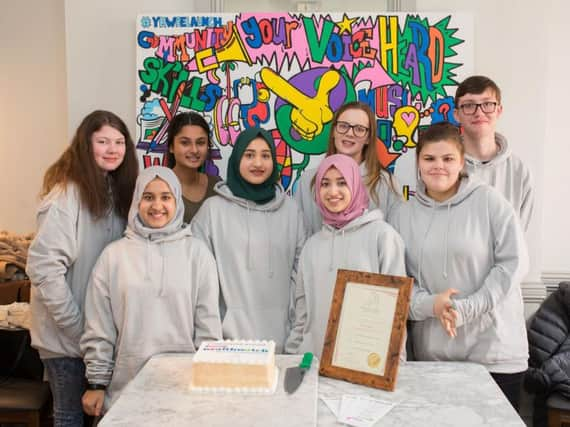Significantly more girls access mental health services in Northamptonshire, new report reveals


More than 700 responses from young people between the ages of 11-19 years old in this county have been collated by Young Healthwatch Northamptonshire in their new emotional wellbeing report, published yesterday (November 29).
The report pinpoints over 60 per cent of young people wished to receive support at school and significantly more girls (43 per cent) said they had needed to access support for their emotional well being, compared to a smaller percentage of their male counterparts (26 per cent).Dr Sankar, consultant child psychiatrist at Northamptonshire Healthcare NHS Foundation Trust, said: “We live in a time where there are significant pressures on children and young people. Social media plays a major part in their daily lives and access to the internet is almost limitless. There are expectations to be instantly responsive and children and young people feel pressurised to be constantly present within a social circle of events, where even a short break can leave them playing catch-up.
Advertisement
Hide AdAdvertisement
Hide Ad“Since the war we have taken it for granted that each generation will have a better lifestyle than the one before. The generation of children growing up today may be the first where lifestyle will be poorer than that of their parents. This generation of children may not recollect their childhood as a happy, carefree time but rather a time of coping with multiple stress coming from all directions.
“Education has become more demanding and there are larger numbers of children going to university along with increased challenges, demands and financial implications.
“Children and young people today face increased pressures from a digital era, together with the sense that the world is not a safe place. All of this has the potential to impact on children’s emotional well-being and mental health.”
Young Healthwatch Northamptonshire - a group of 11-24 year olds who want to make a difference to health and social care locally - surveyed 749 youngsters in the the county on mental health and wellbeing services between April and August.
Advertisement
Hide AdAdvertisement
Hide AdAround half of the 636 young people who gave an answer (53 per cent) lived in Northampton.
Other findings showed how long waiting times were the most common challenge faced when trying to access support services. In total, 43 per cent of 231 young people that said they had accessed Child and Adolescent Mental Health Services (CAMHS) said they found it hard or very hard to use.
The young people that responded valued knowing where to go to get support for their emotional wellbeing and they also identified that support at school and a self-help service would be most useful for them.
One of the recommendations from the report suggested schools and colleges should have their own mental health support services to enable young people to get help in an environment that suits them.
Advertisement
Hide AdAdvertisement
Hide AdA total of 410 students wanted help at school opposed to 244 children, who wanted help at the doctors.
Kate Holt, CEO of Healthwatch Northamptonshire added: "We hear a lot about what and where adults think children and young people need to access support for their mental health and wellbeing, however this report highlights what young people actually think.
"I’m confident that going forward commissioners and providers will ensure true co-production of services with young people in the county."
Papers also show that young people rated their wellbeing on average as 6 out of 10, knowing where to go for support was selected as the most important thing about getting help for emotional wellbeing (by 39% of young people) and about one-third of young people said that they would like services that help them help themselves (self-help, stress busters and resilience building). One-third also felt that basic counselling would be useful.